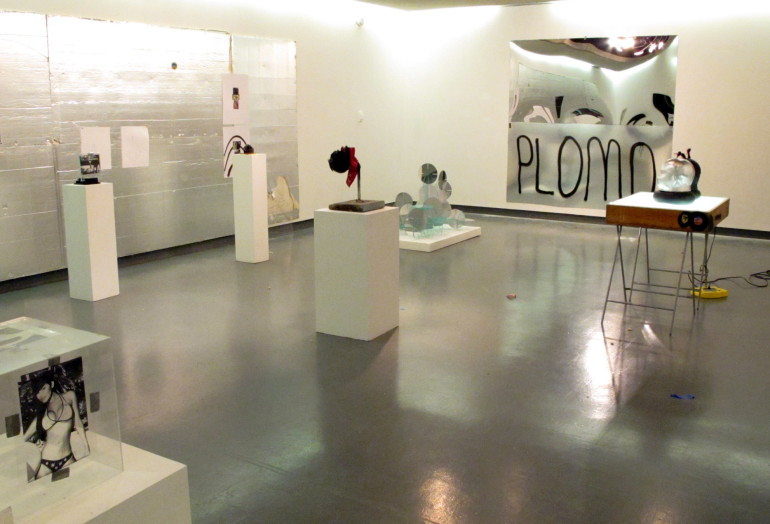Plato O Plomo by Martin Durazo
by Tucker NeelRio Hondo College, Whittier, CA, 2012
Martin Durazo’s art practice makes use of what he calls the “aesthetic of the illicit.” His work excavates the visual topography of sin, the signs of outlaw culture, the illegal and gluttonously dangerous, basically the social signifiers proper society frowns upon. Durazo has turned galleries into all night raves, made overtly libidinous videos, and fashioned installations resembling meth labs and drug nests. Throughout all of this he has dissected and re-imagined the objects and images that define the boundaries of culture, making art that continuously signals the existence of a transient bacchanalian periphery.

For this exhibition at Rio Hondo College, Durazo investigates the so-called “war on drugs,” specifically the various economies, shows of force, and acts of violence employed by Narco cartels along the US/Mexico border. The title of this exhibition, “Plata o Plomo,” takes its conceptual and historical inspiration from the question posed by these drug cartels to lawyers, judges, elected officials, and police whose job it is to stem the drug trade. “Plata o plomo” translates to “silver or lead,” metaphorically signifying a bribe for cooperation, or a bullet for resistance. While the exhibition incorporates ephemera surrounding the drug trade, like transparencies of victims of Narco violence and bombshell beauty queen traffickers, the exhibition as a whole remains much less obvious. There are no simple, prescribed ways to read the works in the gallery.
Durazo’s work doesn’t simply paint a picture of deviance, giving you a fully resolved image on which to project your own sensational desires, like so many beer commercials or porno pop-up ads. Instead, he creates complex aggregate propositions, strange and often experimental or unresolved scenarios that seem in process, like collages working themselves out. These kinds of works are perfectly articulated in the artist’s ongoing use of silver insulation sheets pockmarked with information like reflective bulletin boards, presenting disparate yet related ephemera that ask visitors to question how they create meaning. While presenting these self-reflective environments, Durazo proposes that we examine our own choices and how we label our own boundaries separating propriety from perversion, freaks from norms, straights from queers, the illegal from the legal.
©2024 Tucker Neel. All rights reserved.